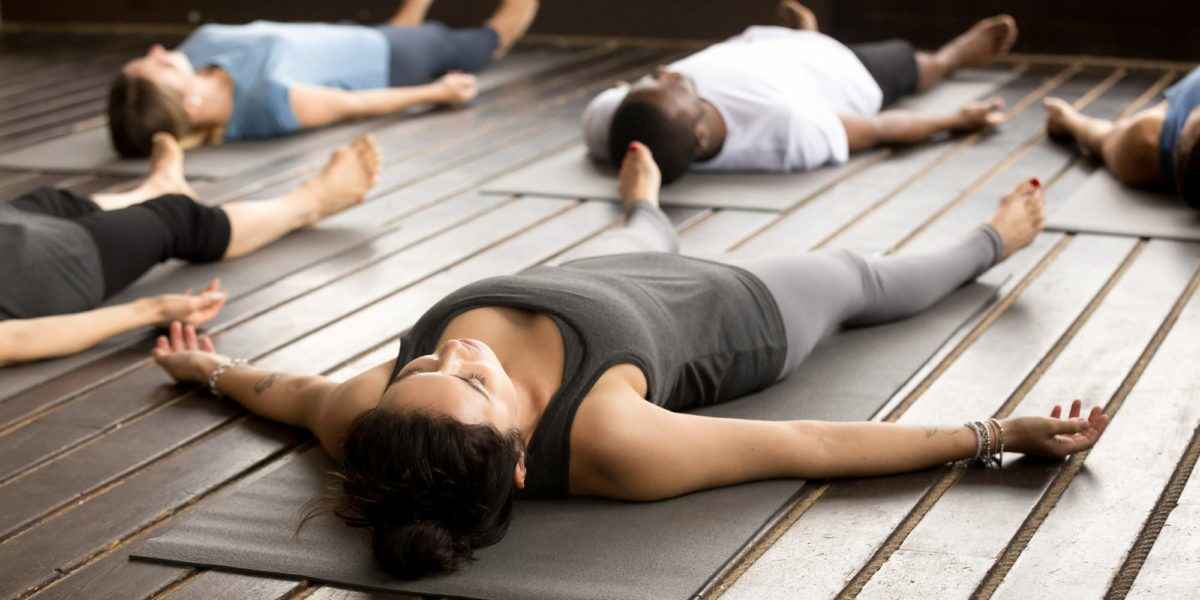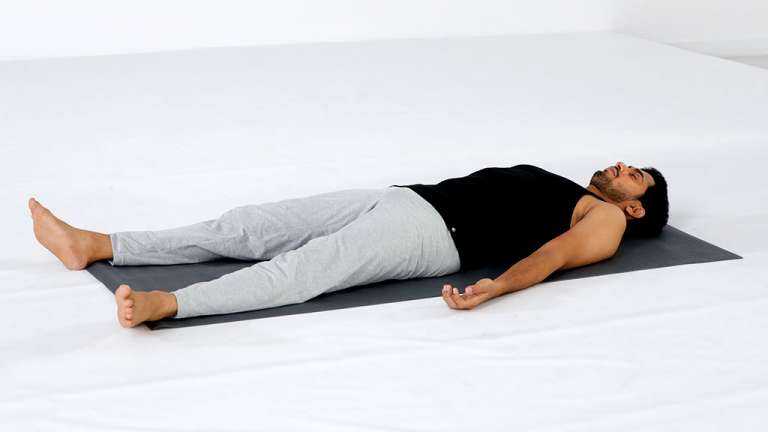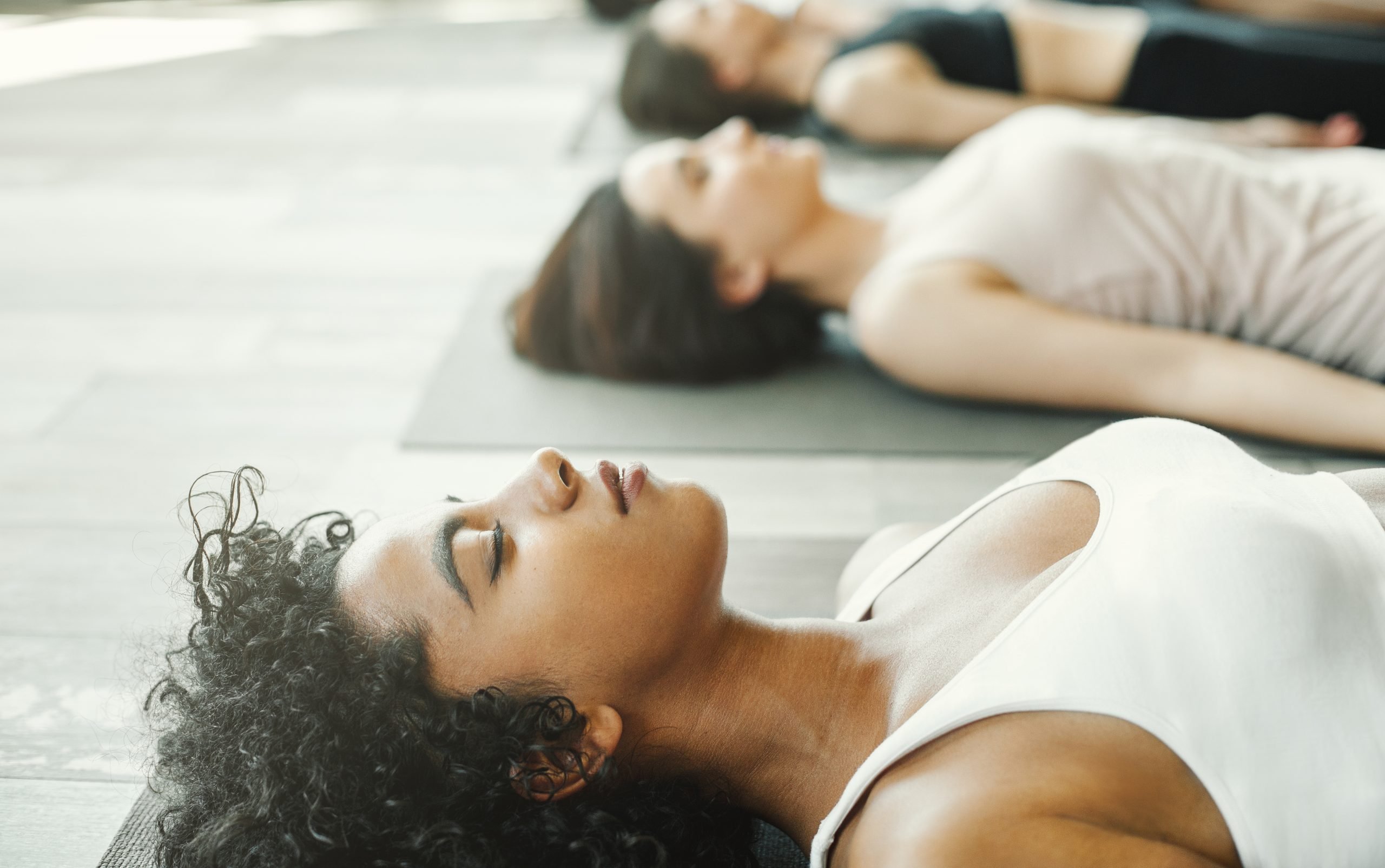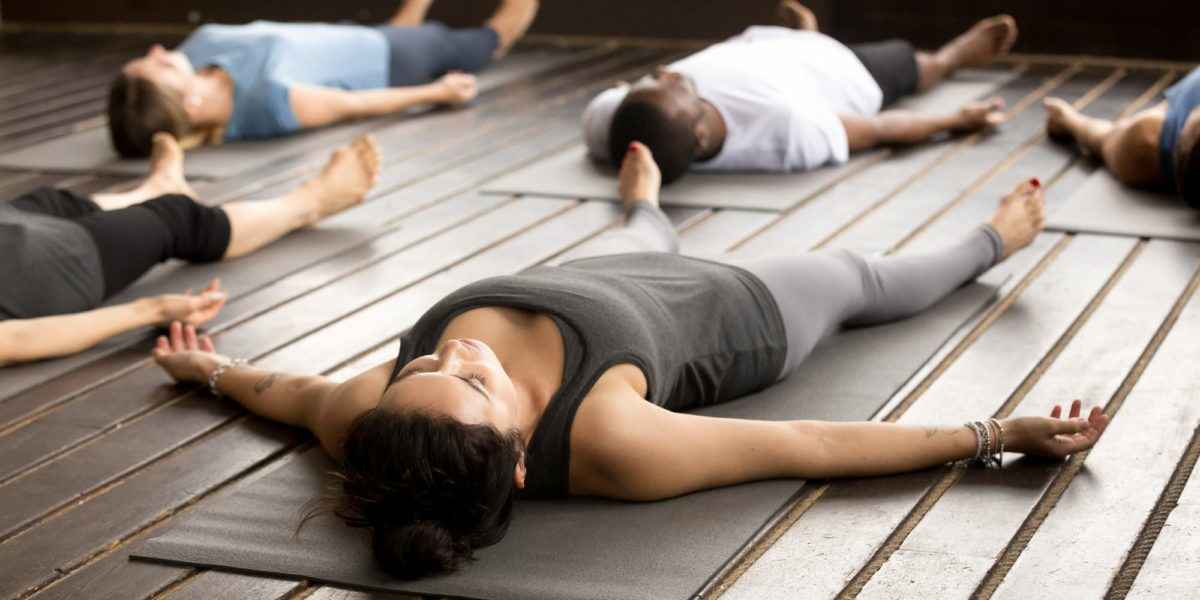

As the prevalence of anxiety, depression, and other mental disorders continue to rise, worldwide, it’s becoming more and more obvious that many (if not most) adults experience some form of mental health issue at some point during their adult life.
For many adults, the occurrence of depression and anxiety is consistent with family, work, and life stressors.
Yoga nidra is a specific form of meditation that addresses stress and anxiety, the key components of mental health disorders. While there are traditional medical interventions available to people who suffer with mental health issues, they are often not sought out or continued by patients.
Prescription medications, hypnotherapy, psychotherapy, and similar interventions are costly, time consuming, and sometimes are only a temporary solution to the side effects of mental health disorders.
Research shows that not only is yoga nidra safe and effective for treating anxiety and depression symptoms, it’s one of the few holistic complementary forms of therapy supported by conventional medical practitioners.
This is why a good understanding of what yog nidra is and how a yoga nidra practice affects your mental health is important. So you can practice it knowing it’s backed by science!

We’ve covered this topic in other articles on the MyYogaTeacher blog as well, but in case you haven’t seen them, here’s a brief explanation!
Yoga nidra is a form of meditation, usually guided. It’s also often known as “yogic sleep” and is, in fact, practiced lying down (great start, right?!). This ancient form of meditation is where the practitioner – that’s you – enters deep states of relaxation and transfers awareness from the outer world to their inner one.
Yoga nidra is particularly beneficial for those who suffer from insomnia, burnout, PTSD, anxiety, and depression.
This form of yoga is very different from other forms of meditation. It isn’t just about guided visualizations, affirmations, and yoga nidra is certainly not about daydreaming…or dreaming at all.
In yoga nidra, the conscious mind remains active while the brain and body themselves reach a deep relaxation state. Most importantly, unlike in hypnosis, you are always in control.

Now that you have a better understanding of what it is, we can discuss how yoga nidra works to improve your mental health!
The autonomic nervous system is the part of our body that regulates functions that don’t require conscious thought. Your heart beating, breathing, eyes blinking, digestion, and blood flow are a few examples.
This system also includes our flight-or-fight response (sympathetic nervous system).
The practice of yoga nidra meditation activates the parasympathetic nervous system – the opposite of the sympathetic nervous system. This is a part of your autonomic nervous system that controls our body’s ability to relax. When we relax deeply (such as when we’re in a dreamless sleep), our body is able to heal.
This is why people who suffer from anxiety and depression often want to use sleep as a coping mechanism. Besides the fact that negative mental health states make you tired, sleeping is recovery.
A yoga nidra meditation practice allows your body to enter a sleep-like state while also maintaining control of your consciousness. This allows you to not only deeply relax but also rewire your mind (with the help of a yoga nidra instructor) to think and even behave differently.
So your body gets to heal while you’re addressing the root cause of your mental health issues. No drugs. No pills. No nasty side effects from those types of medications. No costly visits to therapists unless you want to.
Just a reduction or elimination of anxiety, depression, and stress responses, which contribute to better mental and physical health.

Your physiological body responds to your mental health. When you’re stressed, it releases cortisol, a hormone that causes inflammation. When you’re anxious, your blood pressure rises. When you’re experiencing post traumatic stress responses, your digestive system may almost completely stop working (temporarily anyway).
Prolonged exposure to mental health issues is responsible for numerous health problems!
Heart attacks, strokes, hypertension, eating disorders, addiction to medications, chronic pain, headaches and migraines. So many things that lead to a shorter life span and impact your current quality of life.
Yoga nidra meditation benefits include:
Better immune function
Decreased blood pressure
Decreased cortisol levels
Improved sleep
Enhanced memory and cognitive performance
Reduction of chronic pain
Diminished symptoms of anxiety and depression
More positive thought patterns
Reduced or elimination of headaches
Improved digestion
Plus a whole host of others!
Who wouldn’t want to live a happier, healthier life with less stress, more mental clarity, and more optimism?
Here at MyYogaTeacher, we’re passionate about whole body health. That includes mental and emotional health. And we feel very strongly that yoga is for everyone. Our expert and experienced yoga teachers are well-versed in many forms of meditation, and group classes dedicated to them are available to all of our members!
We have 70+ expert yoga instructors, many who specialize in yoga therapy, meditation, or even have masters degrees in those same areas. They are experienced, kind, and truly care about your well being!
We’d love to have you join our community and discover how meditation and mindfulness positively impacts your life!
Not a MyYogaTeacher member? Whether you’re interested in teaching yoga, starting yoga, or growing in your yoga journey, MyYogaTeacher is a great place to do it!
When you sign up for a 1:1 membership with us you get:
102 expert, highly qualified yoga instructors to choose from
The ability to switch instructors or take classes with only your child’s faves
Access to unlimited group classes, taught live
Personalized instruction and work out, diet, and lifestyle plans
To be a member of a HUGE community of happy yogis from around the world
Yoga teachers who become friends, who truly care about your chIf you haven’t checked us out already, grab two free 1:1 sessions with your 2-week free trial here!

Receive personalized guidance tailored to your unique fitness goals, live with a dedicated coach—no credit card required.